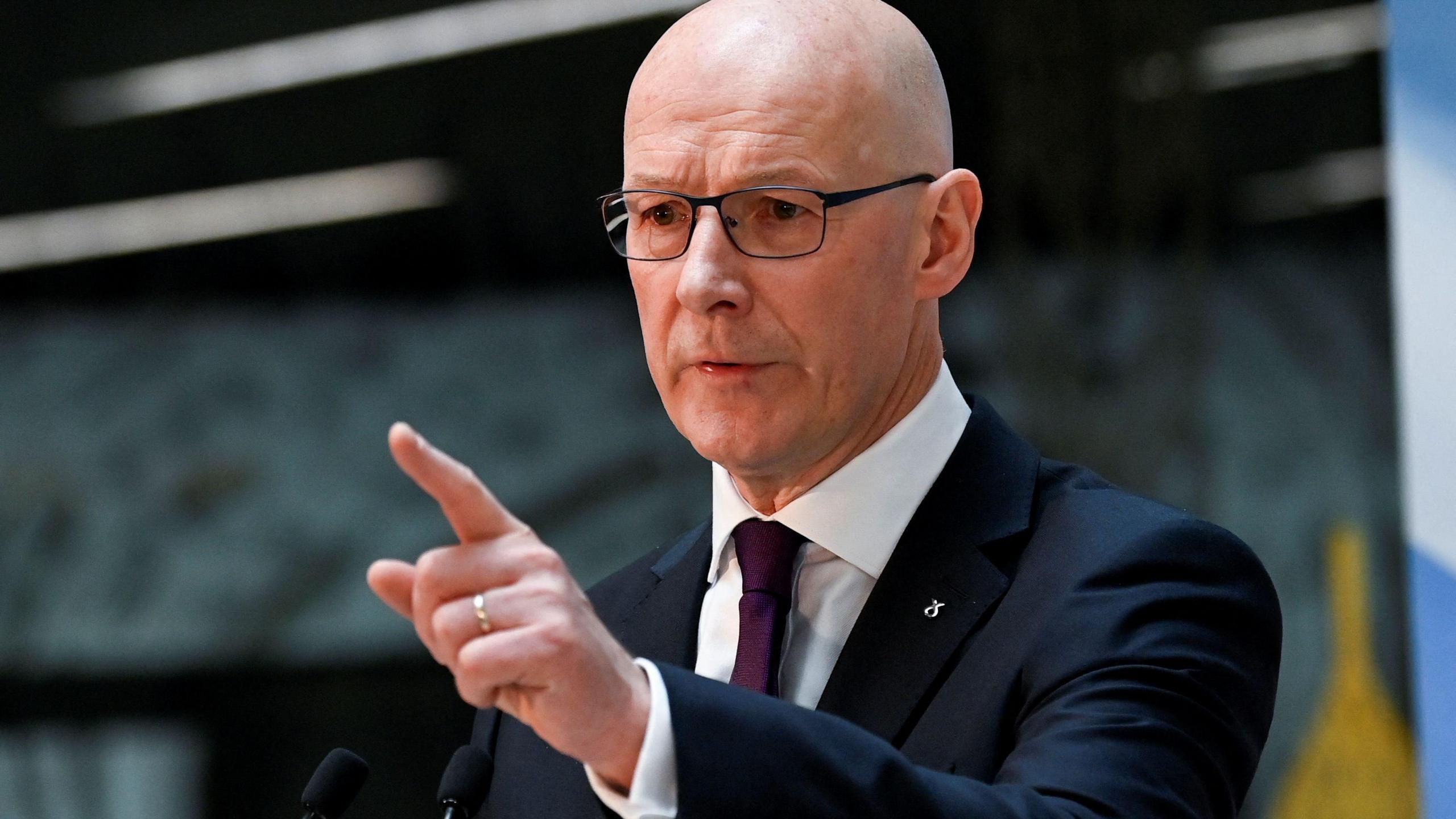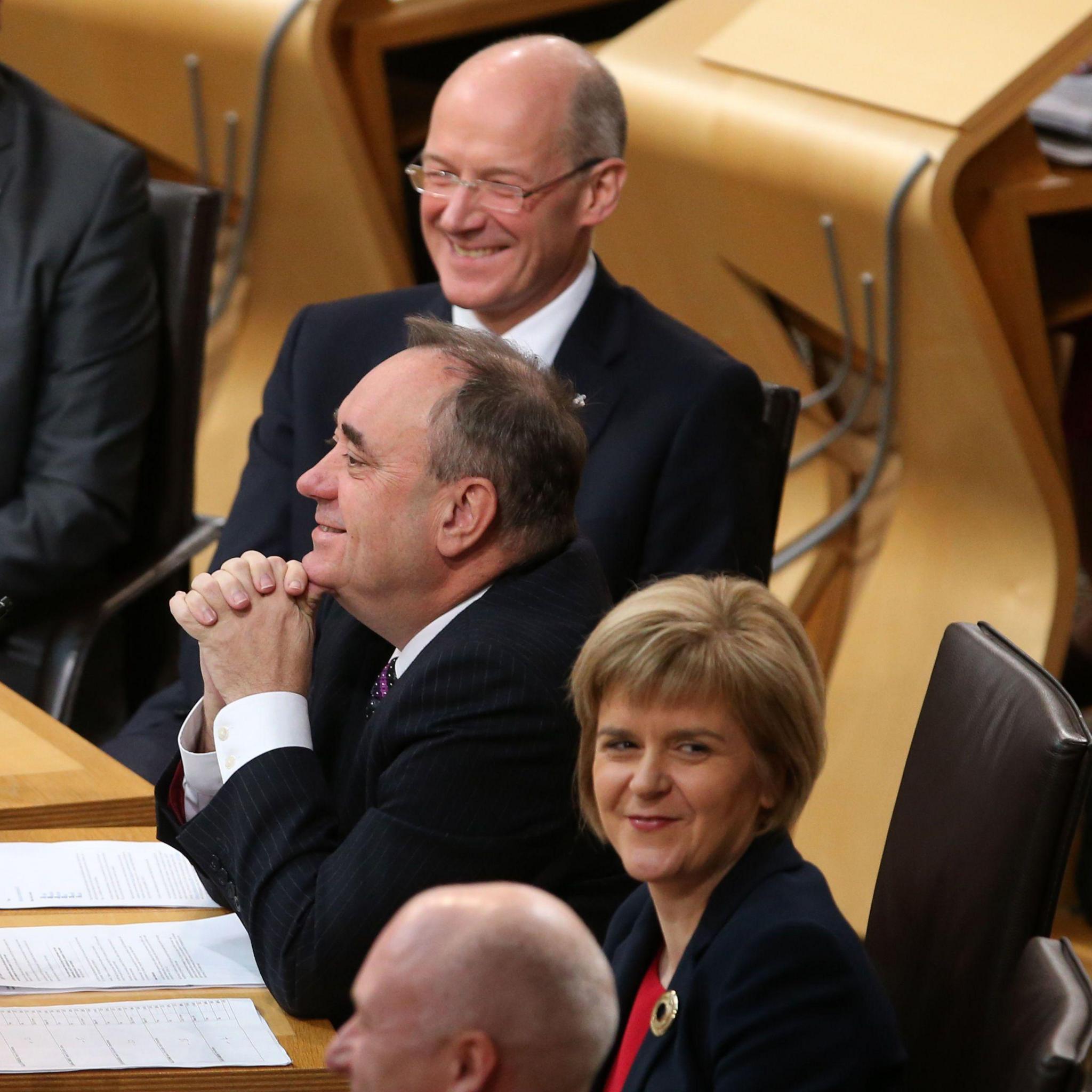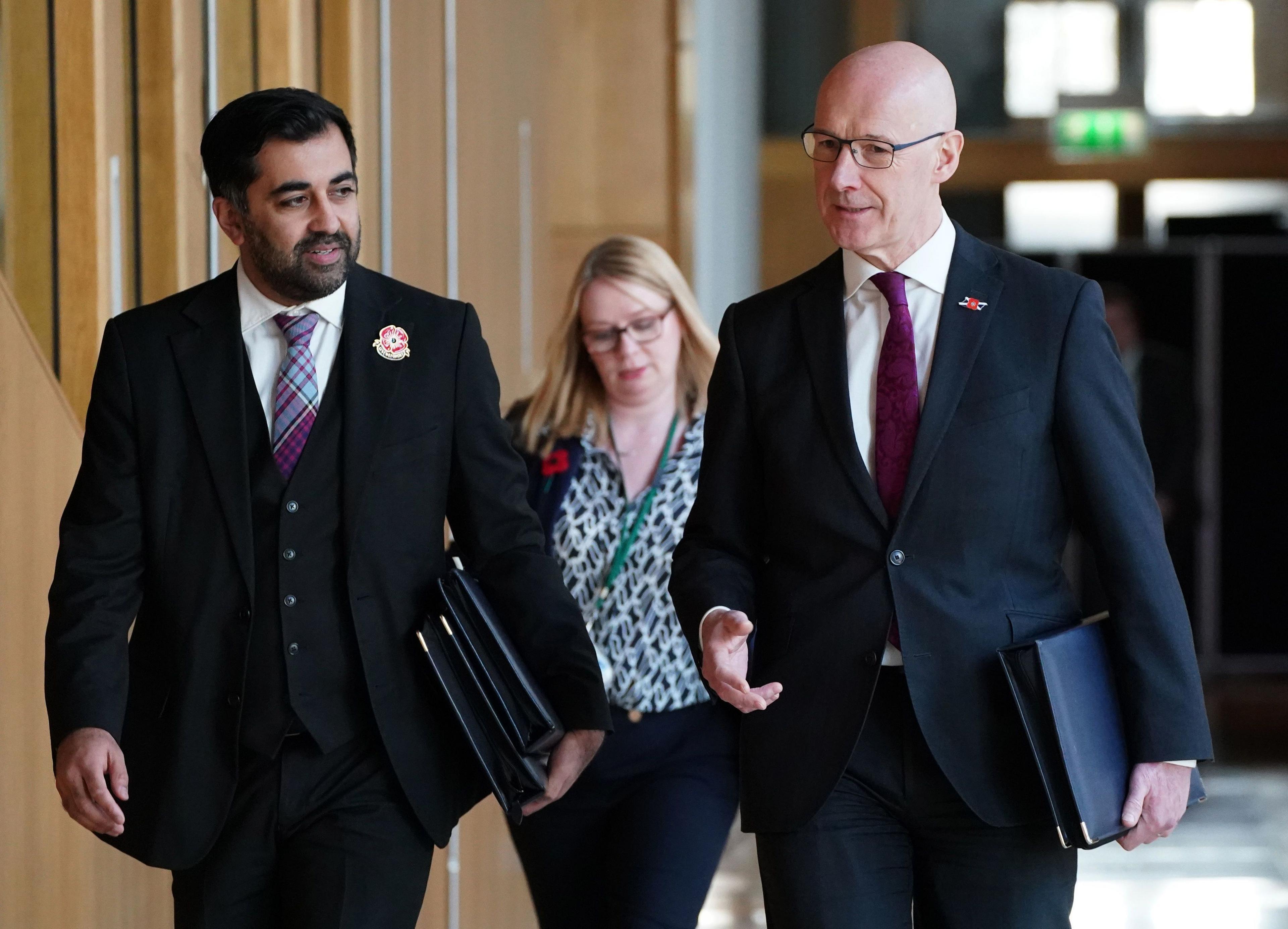Big tensions remain in SNP as Swinney takes leadership

John Swinney is set to become the seventh first minister of Scotland
- Published
This is a big moment in Scottish politics, not least for John Swinney himself.
For the second time in his life, he’s been elected leader of the SNP in difficult circumstances, only this time without a contest.
He’s taking on the job 20 years after he resigned having led his party through three election setbacks in Westminster, Holyrood and European Parliament polls.
The SNP had never been in power back then. In 2024, the party leader is also expected to run the Scottish government.
John Swinney will become only the seventh first minister of Scotland in Holyrood’s 25 year history.
After Alex Salmond, Nicola Sturgeon and Humza Yousaf, he’s the fourth FM from the SNP.
New SNP leader Swinney vows fresh chapter for party
- Published6 May 2024
How will Scotland's next first minister be chosen?
- Published6 May 2024
Having been a senior minister in government for 16 years including deputy first minister throughout Nicola Sturgeon’s time in charge - there is arguably no one more qualified for the top job.
That said, as a key figure throughout the SNP’s time in power, he cannot disassociate himself from the controversies and policy setbacks of those years.
That may be among the reasons he has not hankered after this elevation. He has also mentioned his family circumstances. His wife, Elizabeth Quigley, has MS.
I remember asking him some years ago if he would like another go at leadership.
He simply said that he’d already had a shot and that had not gone too well.
John Swinney could probably have taken over from Nicola Sturgeon last year - few would have bet against him if he’d stood then.
He decided not to, revealing that he had actually tried to leave government repeatedly since 2016.

Swinney at Holyrood with Alex Salmond and Nicola Sturgeon in 2014
John Swinney is almost an accidental SNP leader and prospective first minister.
He seems to have been persuaded to take on these responsibilities out of a sense of duty to a divided party under pressure from an apparent Labour revival.
There’s plenty of trouble in government too.
A formal power-sharing deal with the Greens having been ditched by his predecessor, Mr Swinney will lead a minority administration and will need to win the support of rival parties vote by vote to pass legislation.
There are also big delivery challenges with long waits for many NHS patients, a sense of decline in some areas of education and major budget pressures to be addressed.
There is no obvious pathway to Scottish independence which remains the SNP’s ultimate goal.
Having said that the next first minister has made clear he will keep arguing for independence.

Outgoing first minister Humza Yousaf with John Swinney in 2022
While that leaves him open to attack from pro-UK parties that he is pursuing a nationalist obsession, he has little option but to keep it on the agenda to help motivate his party’s core support in an election year.
If anyone in the SNP has enough respect and authority within the membership to hold rival factions together in the months leading up to that vote, it is probably John Swinney.
That does not mean he will be able to do it or that he can reverse the party’s apparent slide in the opinion polls.
As things stand, the SNP is in danger of losing a substantial number of Westminster seats to Labour.
If that happens, it could mean John Swinney’s time in charge is short - although he insists he is no caretaker and intends to lead the SNP into the 2026 Holyrood election and beyond.
That will depend on his performance and - as ever in politics - events.
Police Scotland are continuing their investigation into the SNP’s finances having charged the party’s former chief executive, Peter Murrell with embezzlement.
John Swinney says the SNP is ‘coming back together again’
Mr Swinney has no power to clear the cloud Operation Branchform has cast over his party. He has to allow the police and prosecutors to make their own decisions in their own time.
What he can control is who serves alongside him in government. A reshuffle will be one of his first tasks when he takes power.
We already know that he has promised a senior job to the former finance secretary, Kate Forbes who came a close second in last year’s leadership contest.
That should help to appease a significant strand of opinion in the SNP but it could easily antagonise others who do not share her socially conservative views.
Beneath the surface, big political tensions are likely to remain.
That is why John Swinney’s second term as SNP leader - however long it lasts - may be particularly notable for having deferred if not completely averted a major contest for control of the party and the direction that it takes.